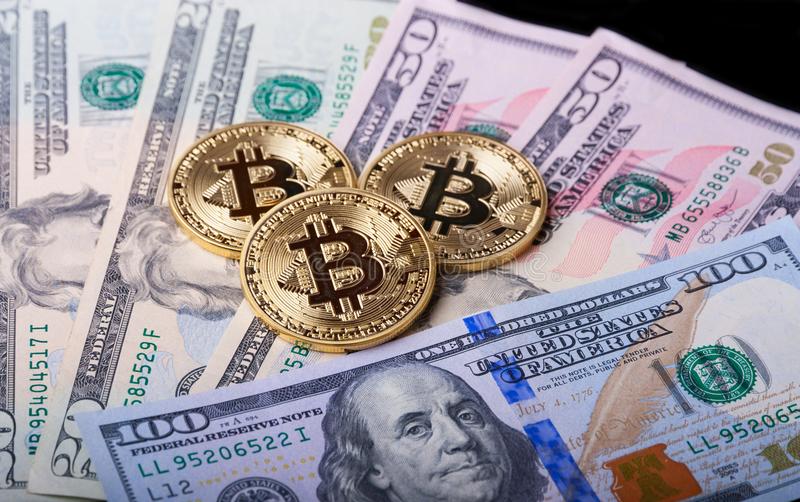
Fiat currencies and crypto currencies are two entirely different financial instruments with each boasting its own advantages and disadvantages. Fiat currencies include U.S. dollars, Euros, Japanese yen and many more national currencies.
A fiat currency exists only because the government says it does, but crypto currencies like Bitcoin exist on a blockchain that relies on cryptography to verify each transaction and prevent fraud. Each currency has its strengths and weaknesses but which one will come out on top?
Here’s what you need to know about the pros and cons of both fiat currencies and crypto coins in order to decide which one fits your needs best.
What is a fiat currency?
A fiat currency is a form of currency that is not backed by a physical commodity, like gold, but instead relies on the faith and creditworthiness of the issuing government. The US dollar, Japanese yen, euro, British pound and Swiss franc are all examples of fiat currencies.
What is a cryptocurrency?
A cryptocurrency is a digital or virtual currency that uses cryptography for security. A cryptocurrency is difficult to counterfeit because of this security feature. The first cryptocurrency was Bitcoin, which was created in 2009 by an unknown person or group under the name Satoshi Nakamoto.
Bitcoin is considered a decentralized currency because it doesn't have a central government regulating it. The value of a cryptocurrency may be based on supply and demand, but usually reflects the worthiness as measured against other currencies such as the US Dollar or Euro.
There are many types of cryptocurrencies in existence today including: Ethereum, Ripple XRP (XRP), Litecoin (LTC), Dashcoin DASH (DASH) and Monero (XMR).
The pros of fiat currencies
Fiat currencies are backed by a government's promise, which is why they're sometimes called legal tender. You'll often hear that fiat currencies are backed by the full faith and credit of the U.S. government.
This means that even if you don't trust the U.S. economy, you can trust your money in a U.S. bank account because the federal government stands behind it with its own assets, such as gold or other financial holdings.
Another pro of fiat currencies is that they're familiar to many people. For example, people in France know how to use Euros and Europeans know how to use pounds sterling, which has been a currency for over three hundred years. And there's an advantage when exchanging one country's currency for another--a person knows what 100 Euros looks like and so on when shopping internationally.
The cons of fiat currencies
There are many cons of fiat currencies. For example, they are not universal. Each country has its own currency, which makes it difficult to travel without the right denominations of currency in your pocket or wallet.
Another con of fiat currencies is that they are not truly decentralized because the government dictates how much money is in circulation and what people can do with it.
Finally, fiat currencies can be centralized because governments have control over them. Centralized economies might seem beneficial for some businesses, but this isn’t true for a sustainable economy. The more decentralized an economy is, the better off it will be.
The pros of cryptocurrencies
Cryptocurrencies are a decentralized currency that isn’t backed by a government or country. They are also not as easily counterfeited.
This leads to the pros of cryptocurrencies including being more secure from fraud, being able to be traded across borders without fees, having no risk of being devalued by inflation, and having the option of becoming anonymous.
The cons of cryptocurrencies
There are many cons to cryptocurrencies. One of the biggest is that they are unregulated. This means that there is no government or central bank to provide oversight, which could leave people vulnerable to fraudsters, hackers, and scam artists. There is also no one set of standards for how cryptocurrencies work.
This can lead to confusion in transactions because it's not always clear what information needs to be shared or how much money should be exchanged. Because of this, you need to know exactly who you're dealing with before sending over any funds.
The other con with cryptocurrencies is that they don't have a lot of protection from inflation because their value fluctuates so often. If the currency continues to grow in popularity and more people start using it, then it might get better at combating inflation.
If a cryptocurrency becomes too popular and starts disrupting traditional currency practices, then governments may step in an attempt to regulate them as well .
Which is better?
Fiat currencies are better for paying for day to day items, but if you plan on investing your money in the long term, then crypto currencies might be a better option.
On the other hand, if you're looking for speculative investment opportunities or other digital assets like company shares or products from merchants like Amazon or Apple (NASDAQ: AAPL), crypto currencies might suit your needs better.
Conclusion
In conclusion, fiat currencies have many advantages such as being a store of value, a unit of account and a medium of exchange. However, there are many disadvantages to fiat currencies as well. For instance, the central bank can create too much currency which can lead to inflation.
Additionally, it is much easier for governments to regulate crypto currencies than it is for them to regulate fiat currencies since cryptocurrencies are decentralized.
One advantage that cryptos do not offer, however, is that they cannot be used for day-to-day transactions such as buying groceries or gas; therefore people must use their debit card or cash instead.























